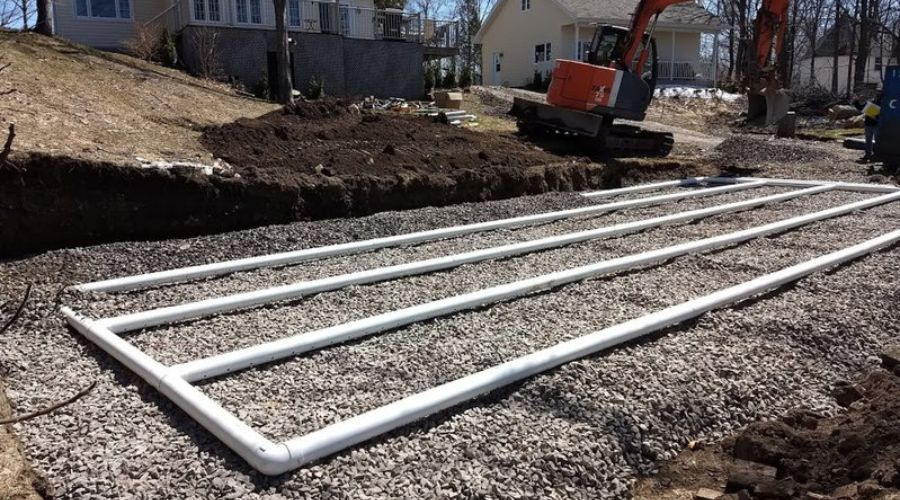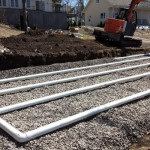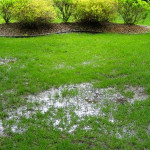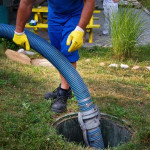Septic Systems 101: Learn the Basics
This back-to-school season, take a crash course in septic systems! Septic tanks are an alternative plumbing option for homes that cannot be connected to the main city sewer line. Everything that goes down a home's drain exits to either a septic system or the sewer.
Septic systems enable homeowners to store and dispose of wastewater underground without being connected to the main sewer line. Homeowners in rural areas may need to install a septic system if their property is outside the city lines. The water bill will show a $0 charge for sewer/wastewater disposal for homes connected to a septic system rather than the sewer.
What Is a Septic Tank?
Septic systems are made up of two main parts, the septic tank, and the drain field. Unlike a city sewer system, homeowners must maintain their septic system themselves. A basic understanding of what a septic tank is and how it works can help homeowners improve their septic system's performance.
Septic Tank: A septic tank is an underground container that holds wastewater. They are usually made out of durable plastic or concrete. Wastewater from the home’s plumbing drains into the septic tank to be safely disposed of.
The solids from the wastewater sink to the bottom of the septic tank, and oils rise to the top. The liquid wastewater, called effluent, is then disposed of in a drain field/soil absorption field. A barrier prevents the solids and oils from exiting into the drain field.
Drain Field (Soil Absorption Field): The liquid wastewater left over from the septic tank treatment is disposed of through underground pipes that empty the water into the soil. The water absorbs into the soil, which works as a natural filter to cleanse the water until it becomes groundwater.
When the sewer system is well-maintained, the soil absorption field should not produce any foul odors or spread contaminants. However, too much liquid in the drain field can cause a septic tank backup.
Signs You Need Septic Tank Repair
 Homeowners should be on the lookout for any signs that their septic tank needs repair, such as:
Homeowners should be on the lookout for any signs that their septic tank needs repair, such as:
- Clogged drains
- Slow draining
- Foul smells
- Backed up water
- Water puddles in the drain field
Septic tank problems can become a disaster for homeowners if left in a state of disrepair. The sooner the problem with the septic tank is fixed, the better. It is a good idea always to have a trusted local plumber a phone call away in case of a septic system emergency.
Septic System Maintenance
 Scheduling regular septic system maintenance can help homeowners improve their septic system's longevity and avoid a plumbing disaster. Working on septic systems can be dangerous, so it’s essential to call a qualified professional for septic tank maintenance.
Scheduling regular septic system maintenance can help homeowners improve their septic system's longevity and avoid a plumbing disaster. Working on septic systems can be dangerous, so it’s essential to call a qualified professional for septic tank maintenance.
During annual maintenance, the plumber will check for any signs of damage or outdated parts. Septic tanks should be inspected by a professional plumber annually or at least every three years. A professional should pump the septic tank every three to five years. Depending on the household size, homeowners may need to pump their tanks more often.
Homeowners can take care of their septic systems between maintenance appointments by practicing water conservation. Installing water-saving plumbing fixtures can help improve the performance of the septic system. Everything that goes down the home’s drains will end up in the septic tank, so homeowners should be mindful about what gets flushed down the toilet. The toilet should not be used as a trash can, and nothing besides toilet tissue should ever be flushed.
About Henco Plumbing Services
Henco Plumbing Services is proud to serve its community in Vancouver, WA, and the surrounding areas with award-winning service. They provide flat-rate pricing, same-day service, and financing. Call them today for septic tank services in Vancouver, WA.

































